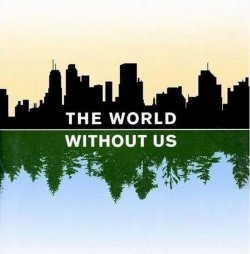Navigation
Install the app
How to install the app on iOS
Follow along with the video below to see how to install our site as a web app on your home screen.
Note: This feature may not be available in some browsers.
More options
Style variation
You are using an out of date browser. It may not display this or other websites correctly.
You should upgrade or use an alternative browser.
You should upgrade or use an alternative browser.
East Coast Earthquake
- Thread starter Xue Sheng
- Start date
I was outside washing my car. didn't feel a thing.
From a FB post of a geology major (masters degree) freind of mine...
Glad nobody was hurt during these events... Colorado was also hit today but nobody seems to really care about it... weird.
http://www.iris.edu/seismon/zoom/?view=eveday&lon=-101&lat=36
Also from a link he provided which should be insightful...[h=6]You can't compare east coast and west coast quakes based on their magnitude. The crust involved in the earthquakes in the east is much older and denser and no good at absorbing seismic energy. This means that an earthquake in the east will deliver a LOT more energy to buildings and what not (since the rocks themselves aren't absorbing the energy much) over a much larger area that the same quake would in the west.[/h]
So basically a stronger quake like the one in Japan would probably devastate the eastern seaboard. So, if you start feeling a bit shaky get the hell out of the building.http://www.openhazards.com/blogs/kmayeda/east-coast-vs-west-coast-earthquakes-good-and-bad
In the past several years, damaging earthquakes appear to be on the rise and it seems that every few months a big event happens (Sumatra, Samoa, Haiti, Chile, Italy etc). It turns out that globally, large earthquake rates have not changed, but unfortunately the past several earthquakes have occurred in populated areas, some of which have poor building practices. This only brings home the need to better understand our risk in North America. Though the west coast of the United States has significantly higher seismicity rates and risk, there are important distinctions between the other side of the U.S. In the east coast, earthquakes are not nearly as common (that's a good thing!) and usually are smaller. However, the crust in the eastern United States is markedly more efficient at propagating seismic waves than in the western United States (it's older and colder). This means that for the same magnitude earthquake, the one in the eastern U.S. will be felt much more widely than one in California. For example, a magnitude 5 in San Jose, CA would be moderately felt in San Francisco (about ..., 45 miles away) with almost no major damage to structures. If you were in an office building sitting down, you'd probably feel a bit of swaying, however if you were walking about, you may not even feel it. In contrast, a magnitude 5 in the east coast could be felt for several hundred miles. In addition to efficient wave propagation, the earthquakes in the east coast tend to radiate much more energy at higher frequencies than those in the west coast (we call this "stress-drop" in earthquake parlance). What this means for those in the east coast is that smaller structures (i.e., homes and small buildings) could experience about a factor of 5 more shaking.
Glad nobody was hurt during these events... Colorado was also hit today but nobody seems to really care about it... weird.
http://www.iris.edu/seismon/zoom/?view=eveday&lon=-101&lat=36
I was driving at the time and felt nothing. My wife and son were having lunch in northern NY state and got a tremor.I am in NC and it shook the building slightly. If you were setting still you felt it if you were up and moving around not so much.
My wife felt it in her building in Boston. She said it was like "a little wave going under your row boat." Some in her building didn't feel a thing, but she's felt them out west and is in tune to such things. I was in Duxbury MA, about 40 miles away, I didn't feel anything, but a half dozen people on my floor all yelled at the same time "what the hell was that?!" My buddy in New York felt it pretty strong. Everyone I know is fine. Thank for asking, that was nice.
There is a reason why other states felt it, especially back east. The rock is different than from other side of Mississippi River. It carries the seismic waves farther.
One thing to watch for is some place in Missouri where there was before strong earthquake in 1812
I learned about that quake from one of those History Channel's disaster shows. What makes me go hmmm, is that both quakes (today) are roughly centered between that particular fault area. Something like that could trigger a shift in that particular fault. It doesn't take much.
In spite of everything that we've done to the planet... it's still a living thing.

Either way, something to look out for.
One thing to watch for is some place in Missouri where there was before strong earthquake in 1812
So you can see that Chicago and the rest of the U.S. that felt something today was from Virginia (and probably from Chicago).http://en.wikipedia.org/wiki/1812_New_Madrid_earthquake There are estimates that the earthquakes were felt strongly over roughly 130,000 square kilometers (50,000 square miles), and moderately across nearly 3 million square kilometers (1 million square miles).
I learned about that quake from one of those History Channel's disaster shows. What makes me go hmmm, is that both quakes (today) are roughly centered between that particular fault area. Something like that could trigger a shift in that particular fault. It doesn't take much.
In spite of everything that we've done to the planet... it's still a living thing.

Either way, something to look out for.
